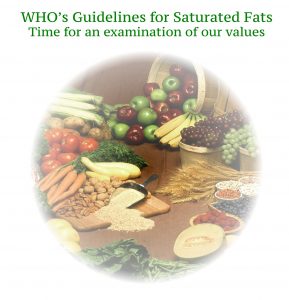WHO’s Guidelines on Saturated Fats – The Reality and the Myths – View the Movie

On the 4th July 2019, the ABC published this news item as its top news story.
World Health Organisation’s recommendations on saturated fat are out of date, expert team says.
It was based on an article, WHO draft guidelines on dietary saturated and trans fatty acids: Time for a new approach? published in THE BMJ the previous day, which was written by Arne Astrup and 17 colleagues.
At least 13 of the 18 authors of this paper, have received funding from the dairy and beef industries.
Whilst the links to the dairy and beef industries are noted in THE BMJ article, it is not mentioned in the ABC’s article. There is no mention that the researchers have been paid millions of dollars by the dairy, beef and chocolate industries.
It is not responsible to leave the information published in ABC’s article to be uncorrected. The majority of readers will only see the statement,
A global team of researchers has taken aim at World Health Organisation draft guidelines that recommend people reduce their saturated fat intake.
The picture accompanying the article shows burger, chips, eggs, and baked beans.
The readers’ conclusion – eating bacon and eggs is no longer considered to be unsafe.
At the end of Astrup’s article, the evidence for including eggs, chocolate, cheese, and meat is listed, which matches the needs of their corporate sponsors.
Obtain your copy of my response to the ABC’s article or view a movie that shows the deceptions of these industry-funded researchers.
References for both the movie and the book are available at the end of the book. The book contains more information than the movie. Viewing time is 98 minutes.
Last updated on Thursday 4 January 2024 at 10:46 by administrators





